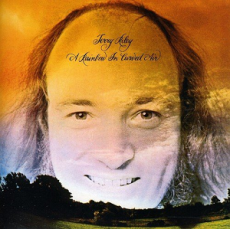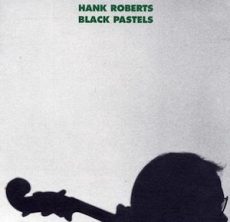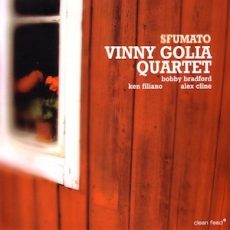
Daily Dose Of Jazz…
Terrence Mitchell Riley was born in Colfax, California on June 24, 1935 and grew up in Redding, California. In the 1950s, he began performing as a solo pianist and studied composition at San Francisco State University, the San Francisco Conservatory, and the University of California Berkeley, studying with Seymour Shifrin and Robert Erickson.
Befriending minimalist omposer La Monte Young, together they performed Riley’s improvisatory composition Concert for Two Pianists and Tape Recorders in 1959–60. Riley later became involved in the experimental San Francisco Tape Music Center, working with Morton Subotnick, Steve Reich, Pauline Oliveros, and Ramon Sender. Throughout the 1960s, he also traveled frequently in Europe, taking in musical influences and supporting himself by playing in piano bars. He also performed briefly with the Theatre of Eternal Music in New York in 1965-1966.
His most influential teacher was Pandit Pran Nath, a master of Indian classical voice who also taught La Monte Young, Marian Zazeela, and Michael Harrison. Riley made numerous trips to India over the course of their association to study and accompany him on tabla, tambura, and voice. In 1971 he joined the Mills College faculty to teach Indian classical music. Riley also cites John Cage and “the really great chamber music groups of John Coltrane and Miles Davis, Charles Mingus, Bill Evans, and Gil Evans as influences on his work.
His long-lasting association with the Kronos Quartet began around 1980 and throughout his career Terry composed 13 string quartets for the ensemble. in addition
Organist, pianist, saxophonist and tamburist Terry Riley, who teaches both as an Indian raga vocalist and as a solo pianist, continues to perform live.
More Posts: bandleader,history,instrumental,jazz,keyboard,music,organ,piano,saxophone,tambura

Daily Dose Of Jazz…
Hank Roberts was born on March 24, 1954 in Terre Haute, Indiana. By the early Eighties made a number of recordings for the defunct JMT label, was a featured member of the Bill Frisell Quartet, and was an important voice in many groups of saxophonist Tim Berne.
Roberts also recorded three discs with the Arcado String Trio, an improvisational chamber group featuring Mark Feldman, violin, and Mark Dresser, double bass.
The 1990s saw him leaving Frisell’s group and discontinued touring. He sporadically released records, including with the progressive folk group Ti Ti Chickapea. Leaving his hiatus in 2008, Hank began touring and performing regularly, releasing Green on the Winter & Winter label. Stefan F. Winter’s subsequent label to JMT. Three years later they released his Everything Is Alive, as well as re-releasing his entire JMT catalogue.
Cellist and vocalist Hank Roberts, who emerged with the downtown New York City jazz scene of the 1980s, continues to be associated with its post-modern tendencies.
More Posts: bandleader,cello,history,instrumental,jazz,music,vocal

Daily Dose Of Jazz…
Charles E. Clark was born on March 11, 1945, in Chicago, Illinois and studied bass with Wilbur Ware. He embarked on a professional career in 1963 and went on to play with Muhal Richard Abrams in his Experimental Band between 1966 and 1968, recording with the ensemble on the album Levels and Degrees of Light.
He was a founding member of the Association for the Advancement of Creative Musicians. Clark played live with Joseph Jarman in the late 1960s, sometimes employing percussion, koto, and cello as well as bass. He recorded on Jarman’s Delmark Records releases, Song For in 1966 and again on As If It Were the Seasons in 1968.
With the death of Clark and pianist Christopher Gaddy, Jarman disbanded his ensemble and joined the Art Ensemble of Chicago.
Double-bassist Charles Clark, who during his extremely short career never recorded as a leader, died April 15, 1969 in Chicago.
More Posts: bass,history,instrumental,jazz,music

Daily Dose Of Jazz…
Vinny Golia was born March 1, 1946 in the Bronx, New York City. As a composer he fuses the rich heritage of jazz, contemporary classical music and world music. As a bandleader, he has presented his music in Europe, Canada, Mexico, Japan, Australia, New Zealand and the United States. His ensembles vary in size and instrumentation.
He founded the jazz record label Nine Winds in 1977 and has won numerous awards as a composer. In 1982 he created the ongoing 50-piece Vinny Golia Large Ensemble to perform his compositions for chamber orchestra and jazz ensembles.
A multi-woodwind performer, Vinny’s recordings have been consistently picked by critics and readers of music journals for their yearly “ten best” lists on JazzTimes, Cadence Magazine, DownBeat, LA Weekly, Jazziz and the Jazz Journalists Association honored him with a Lifetime Achievement Award.
Golia has been a featured performer with Anthony Braxton, Henry Grimes, Joëlle Léandre, Wadada Leo Smith, Horace Tapscott, John Zorn, Tim Berne, George E. Lewis, the Rova Saxophone Quartet, Patti Smith, Eugene Chadbourne, John Bergamo, George Gruntz, Lydia Lunch, and the Los Angeles Philharmonic Orchestra among numerous others.
Most recently, Golia has performed and toured with his sextet which features some of the new voices in the Los Angeles free-improv scene. Saxophonist and composer Vinny Golia, who also plays flute, English horn, clarinet, bassoon, tárogató, continues to expand and discover new avenues of exploration in his music.

Daily Dose Of Jazz…
Alan Lee da Silva was born on January 22, 1939, in Bermuda, British Empire to an Azorean/Portuguese mother, Irene da Silva, and a black Bermudian father known only as Ruby. Emigrating to the United States at the age of five with his mother, he was raised in Harlem, New York City. Here he first began studying the trumpet, and moved on to study the upright bass. He eventually acquired U.S. citizenship by the age of 18 or 19 and in his twentieshe adopted the stage name of Alan Silva.
As one of the most inventive bass players in jazz, Silva has performed with avant-garde jazz musicians Cecil Taylor, Sun Ra, Albert Ayler, Sunny Murray, and Archie Shepp. He performed in 1964’s October Revolution in Jazz as a pioneer in the free jazz movement, and for the 1967 live album Albert Ayler in Greenwich Village.
Since the early 1970s, Alan has lived mainly in Paris, France where he formed the Celestrial Communication Orchestra, dedicated to the performance of free jazz with various instrumental combinations. In the 1980s, Silva opened a music school, Institute for Art, Culture and Perception (I.A.C.P.) in Central Paris, together with François Cotinaud and Denis Colin.
In the 1990s he picked up the electronic keyboard, the electric violin and electric sarangi on his recordings. Since around 2000, he has continmued to perform more frequently as a bassist and bandleader, notably at New York City’s annual Vision Festivals.
More Posts: bass,history,instrumental,jazz,keyboards,music,sarangi,violin




